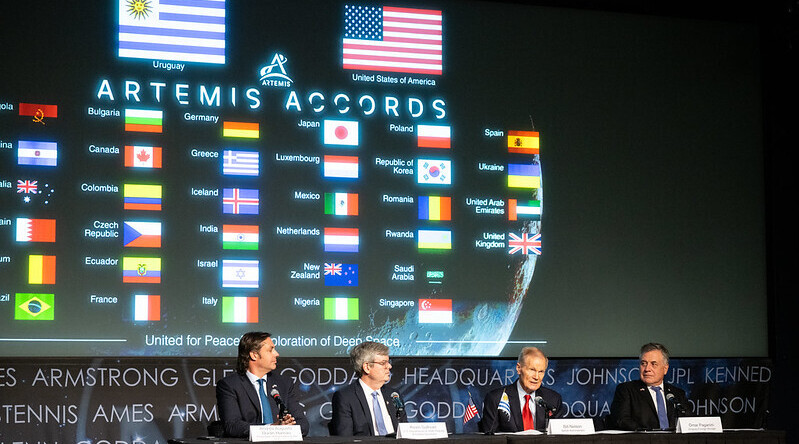This article was first published on February 9, 2018 on the Ethics & International Affairs blog.
In a recent op-ed, two former American Foreign Service officers made a very compelling argument in support of greater American engagement globally and renewed U.S. democracy support abroad. Amb. Adrian Basora and Amb. Ken Yalowitz argue that the current global authoritarian offensive is a U.S. national security threat and conclude that "business and economic thought leaders as well as scholars, policy analysts, and advocates at think tanks and universities are increasingly realizing that the United States will be both less prosperous and less secure if the current dramatic slide in America's image is not halted, and if the authoritarian offensive is not effectively countered." While this argument is valid and important, so is the fact that U.S. foreign policy is largely an elite issue. Furthermore, as Aaron Miller and Richard Sokolsky so eloquently stated in their recent Foreign Policy article, "most Americans frankly don’t give a damn about foreign policy." In fact, the importance of U.S. global engagement has been gradually losing popularity according to various public opinion polls conducted throughout the past decade. There is also growing support for more defense spending as North Korea, cyberspace, and ISIS (Islamic State of Iraq and Syria) continue to be seen as top national security threats. Moreover, most Americans now think that the United States should take care of its own problems and let the rest of the world do the same for itself. In Donald Trump, Americans now have a president who is acting on that popular sentiment. As Nick Gvosdev recently put it, Trump has made it very clear that under his leadership America is likely to become a "self-sufficient economic power" promising to take a "more transactional view of foreign policy."
Thus, given the president’s "America First" rhetoric, foreign policy was visibly and predictably absent from his State of the Union Address, upsetting the foreign policy elite. But Trump's foreign policy is no "mystery" or an "afterthought" as Max Boot called it. Trump may be unaware of many things, like the fact that the words "beautiful," "clean," and "coal" don’t go together, but he appears to know that most Americans do not pick their leaders based on their foreign policy proposals, nor do they spend much time worrying about global affairs. Therefore, his State of the Union address only touched on the rest of the world whenever it was convenient for his simplistic foreign policy agenda. But even in that limited prism, Trump chose the delivery mechanism of his message very carefully. He mentioned the "usual suspects" like Mexico, China, and North Korea by name very few times, and often indirectly. Russia was only mentioned once. Instead, he used the touching stories and physical presence of his guests—a long list of American victims and heroes—in order to illustrate the outside world, on his own terms, in ways which guaranteed the attention of his voters.
The practice of inviting these guests, first used by President Reagan in 1982, is often criticized for using these individuals as human props. But for Trump they were much more—they helped him convey a simple foreign policy stance without actually conveying one. The world that Trump chose to portray in his speech was carefully curated and even seemed to support some common American misconceptions. This outside world is worthy of our concern when it competes with American businesses and jeopardizes our jobs and economic stability, or when it is a source of illegal immigration and poses threats to our physical safety. It is also infested with terrorists and threatens our national security. It consists of ungrateful nations that are not loyal to us despite the "billions and billions and billions of dollars" they receive in aid from the United States. It is worthy of our intervention when it is inhabited by hostile governments like North Korea, which brutally tortures and murders its own, and even American citizens.
When it came to immigration, Trump used his standard talking points: "For decades, open borders have allowed drugs and gangs to pour into our most vulnerable communities. They have allowed millions of low-wage workers to compete for jobs and wages against the poorest Americans. Most tragically, they have caused the loss of many innocent lives." However, to support this statement, he took advantage of the long-standing tradition of inviting convenient guests and drew the crowd's attention to the grieving parents of two 16 year-old girls who were murdered by MS-13 gang members. "Many of these gang members took advantage of glaring loopholes in our laws to enter the country as unaccompanied alien minors—and wound up in Kayla and Nisa’s high school," added Trump. He further backed up his argument about the dangers of illegal immigration by pointing out another guest in the crowd, a Homeland Security investigations special agent Celestino Martinez, and praising the great work he’s done.
When talking about the dangers of terrorism and ISIS, President Trump drew the crowd's attention to Army Staff Sergeant Justin Peck who had been injured in an explosion during a mission to clear buildings that ISIS had rigged with explosives near Raqqa.
Finally, Trump pointed out the grieving parents of Otto Warmbier as well as a disabled dissident from North Korea to remind us of the most dangerous foreign adversary of all—Kim Jong-un's oppressive regime in Pyongyang. Their heartbreaking stories of loss and suffering served as an emotional segue into Donald Trump's concluding remarks about American greatness.
These undeniably tear-jerking and heart-warming stories, the faces of these victims and heroes, were used as stories that back up Mr. Trump's foreign policy approach of American disengagement globally. Thus, the only spaces that are left for engagement, other than where we conduct our transactional affairs, are those that require military force. Thus, unsurprisingly, Trump's solution to America’s foreign policy challenges is greater defense spending: "As part of our defense, we must modernize and rebuild our nuclear arsenal, hopefully never having to use it, but making it so strong and so powerful that it will deter any acts of aggression by any other nation or anyone else."
The State of the Union address was not designed for the foreign policy elite. It was meant for everyone else. It's time we stop waiting for Donald Trump to unveil a more specific and comprehensive foreign policy agenda—after an entire year of Trump presidency it is clear that this is all we are going to get.




